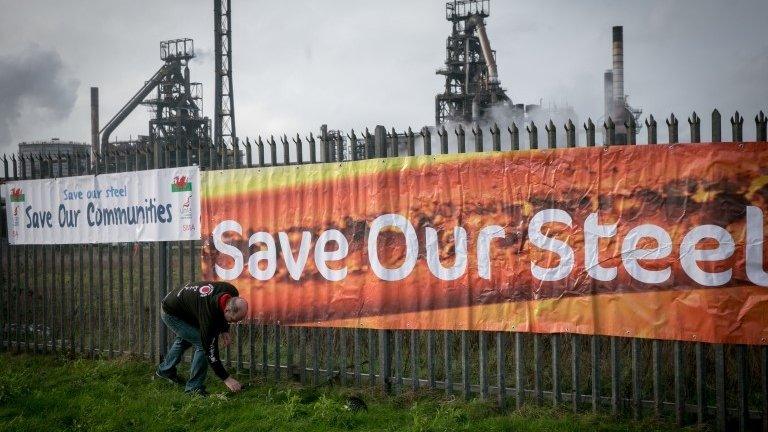Tata to decide fate of UK steelworks
- Published
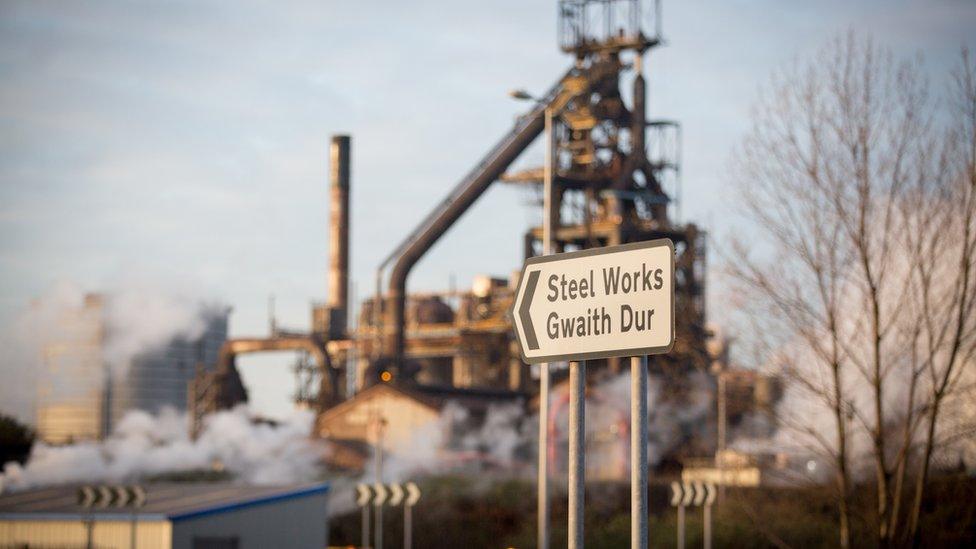
Steel giant Tata is holding a board meeting in India which could decide the fate of thousands of UK workers.
In January, Tata said it planned to cut more than a thousand jobs at its UK plants - with 750 due to be lost at Port Talbot in south Wales.
Unless the board meeting in Mumbai agrees to this turnaround plan, the future of the plant could be in doubt.
The UK steel industry has been hit by a combination of factors that have hit its competitiveness.
Why is Port Talbot steelworks important?
The Port Talbot works and its future are discussed by three generations of the same family who worked there
These factors include relatively high energy prices, the extra cost of climate change policies, and competition from China.
There have been allegations that Chinese steel is being "dumped" on world markets at unrealistically low prices, prices that UK plants cannot compete with.
At the same time China's economy has remained sluggish, meaning that the demand for steel from that nation's construction sector is not as strong as it once was.
'All options'
Meanwhile, Business Minister Anna Soubry told BBC Radio 4's Today programme that the government was prepared to consider "all options" to ensure that steel production continued at Port Talbot.
"We are looking at all manner of options that may or may not be available to us as a government, all options," she said. "It starts from a base of making sure that we continue to make steel in Port Talbot."
Last week, Prime Minister David Cameron said the UK government wanted "to be very supportive and very helpful" to the UK steel industry.
There are strict EU rules that restrict how much support governments can give to particular industries.
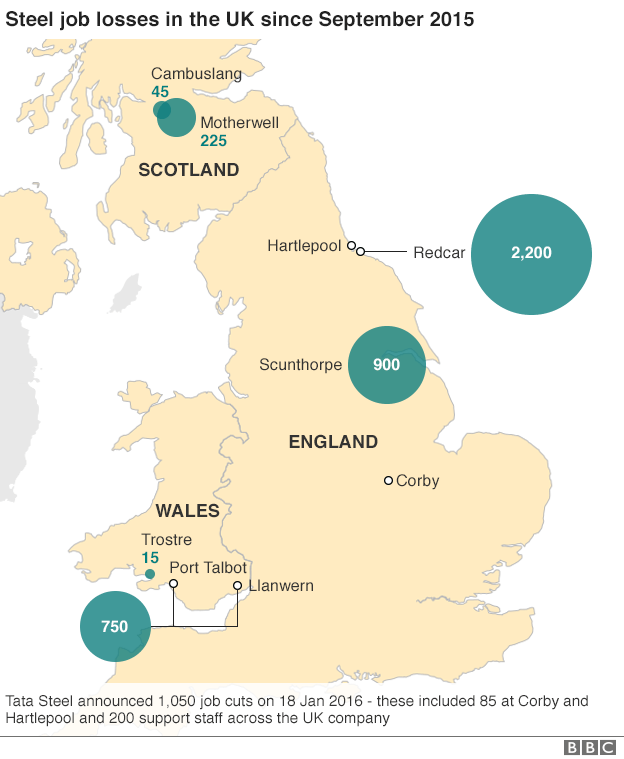

Analysis: Norman Smith, BBC News Assistant Political Editor
If it were down to words alone - then the Port Talbot plant would surely be safe.
Ministers have spoken of their "unshakeable determination" to ensure "a sustainable future for the British steel industry" and promised "all options" will be considered.
In practice however the government's options look a lot more limited. Talk of higher EU tariffs to bar cheap Chinese imports looks unlikely given lobbying by the big steel users who benefit from the lower costs.
Direct taxpayer support is illegal under EU state aid rules. Finding a buyer is a long shot since none was found to save the Redcar steel plant last year.
Even short-term state ownership while a buyer is found - as the Scottish government has done with two of its much smaller steel plants - looks unlikely given the larger scale of the Port Talbot operation.
Some within the Labour high command believe the government should consider nationalisation. Needless to say this is hardly something a Conservative government is likely to consider.
This means the best option would appear to be encouraging Tata Steel to hang on to Port Talbot in the hope steel prices recover and costs at the plant can be reduced.
The fate of Port Talbot would appear - despite the rhetoric from Westminster - to lie very firmly in the hands of the Tata Board in Mumbai.

Reputation
Before the Tata board meeting, Welsh steel representatives held talks in India with company board members.
Roy Rickhuss, general secretary of the union Community, along with Stephen Kinnock, MP for Aberavon, and Frits van Wieringen, chairman of the Tata Steel European works council, met senior representatives from the firm.
According to BBC India business reporter Yogita Limaye, Tata "will be wary of the impact on its reputation" if it is forced to close the Port Talbot plant, as it is seen in India as a firm that cares for its employees.
The final decision on whether to approve the turnaround plan will be made by the 11-member Tata Steel board, led by chairman Cyrus Mistry.
Last week two mothballed Tata Steel plants in Scotland were involved in a deal which will see them acquired by international metals firm Liberty House.
The agreement involves the Scottish Government buying the Clydebridge and Dalzell plants in Lanarkshire from Tata, and immediately selling them on to Liberty.

Analysis: Yogita Limaye, Mumbai business correspondent, BBC News
Tata is one of India's oldest and biggest conglomerates and they own more than a hundred companies that have interests ranging from tea and telecoms, to salt and steel.
The firm is also one of India's most respected companies, and one that is conscious of how it is perceived. That will play a part in making the decision on Port Talbot, but on the other hand there are also compelling economic factors that the board will have to consider.
In its financial results released in February 2016, the company blamed competition from cheap Chinese imports, regulatory costs in the UK and the strong pound for losses at its UK steel business. They've also said regulatory action is needed in the UK to enable the business to compete fairly.
- Published30 March 2016
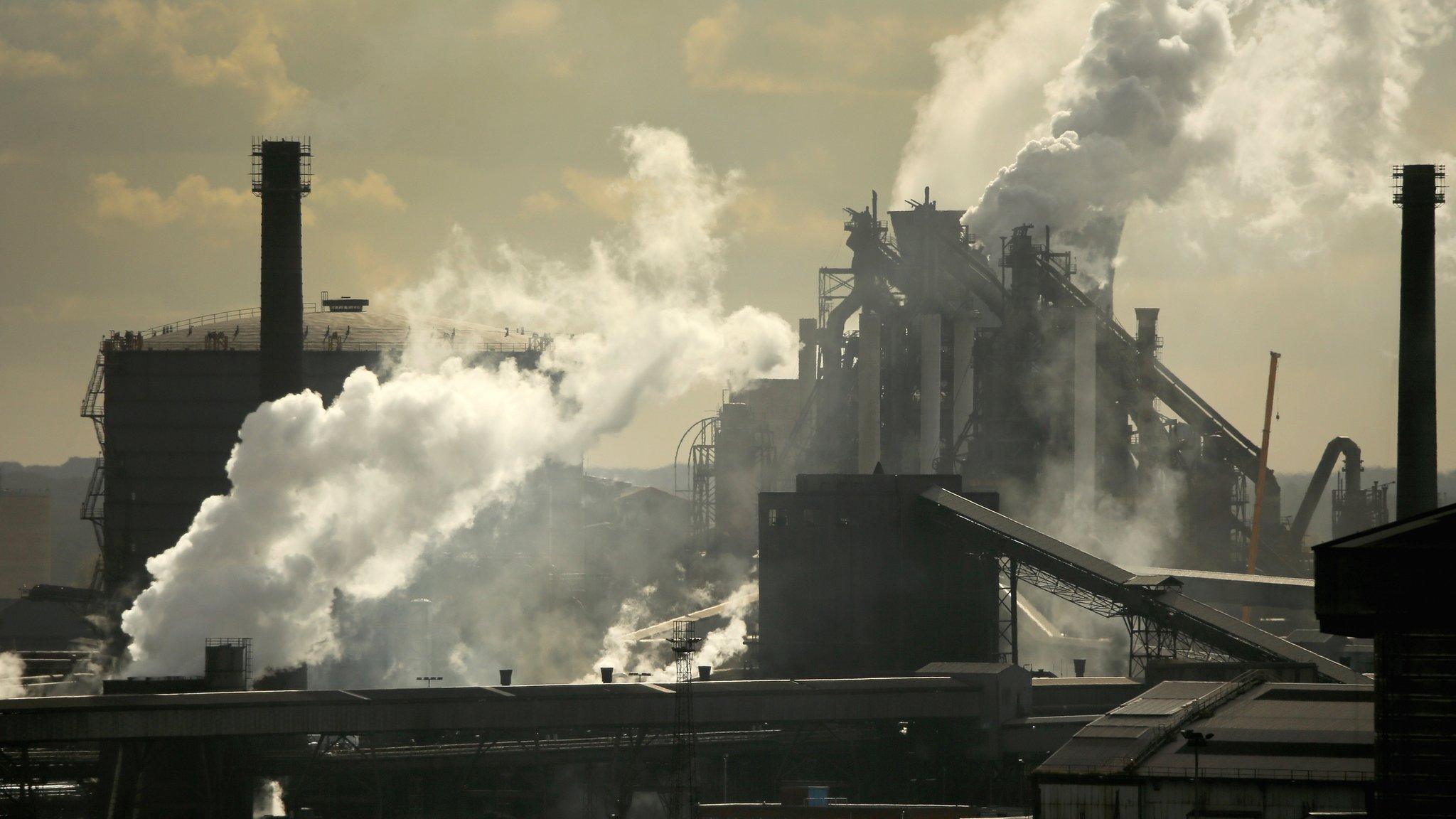
- Published29 March 2016
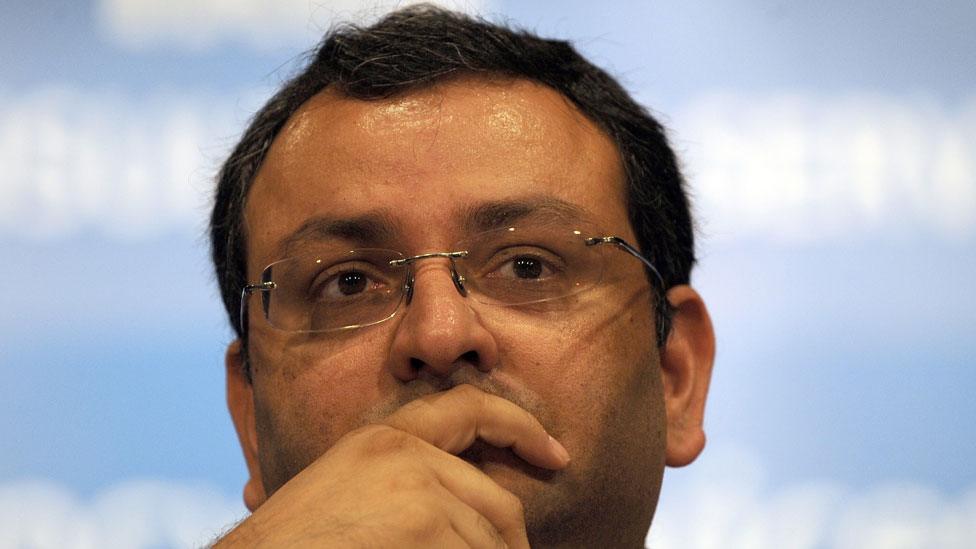
- Published27 March 2016
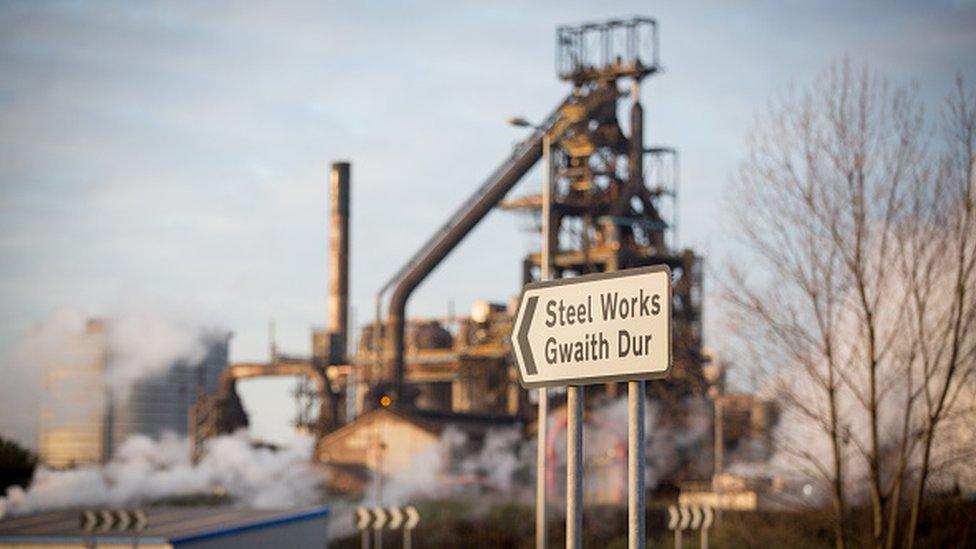
- Published18 January 2016
